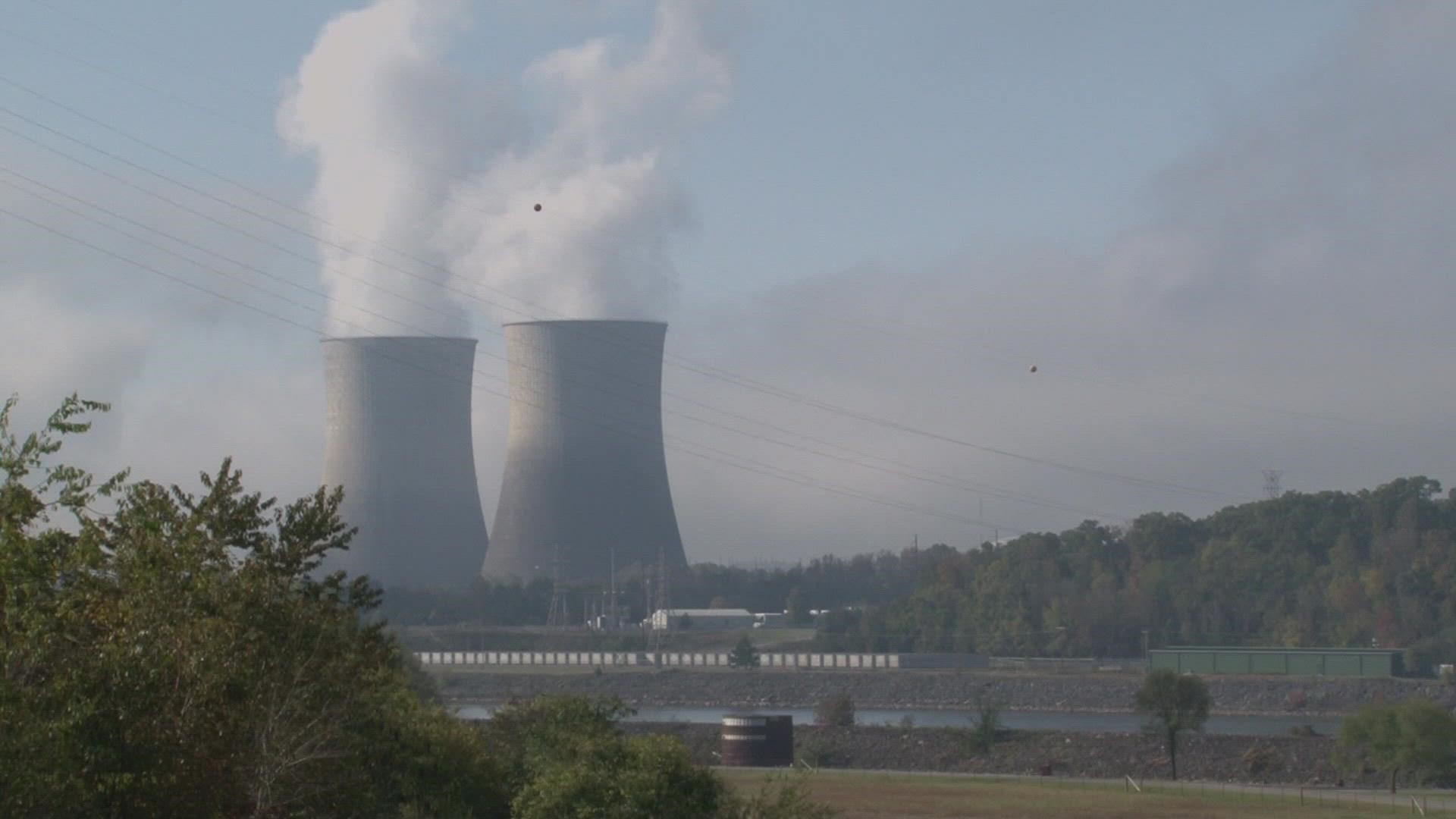OAK RIDGE, Tenn. — The Tennessee Valley Authority operates nuclear power plants across East Tennessee and Alabama. Every year, between Thanksgiving and Christmas, they send out calendars to households within a 10-mile radius of each plant which include tips on how people can prepare for an emergency involving a nuclear power plant.
The TVA also recently hosted an event at their Watts Bar power plant to discuss the steps they take to be prepared in case of an emergency. They said they work with the Tennessee Emergency Management Agency and local agencies to develop response plans, overseen by the Nuclear Regulatory Commission and the Federal Emergency Management Agency.
The tips on the calendars and the items discussed at the event include evacuation routes, shelter locations, and items people should have ready in case of an emergency.
Some of those items include a first-aid kit, a toolbox, candles, matches, potassium iodide tablets, a portable radio, a flashlight and extra batteries. They also provided a list of items people should prepare in case they need to leave due to an evacuation order. Those items are listed below.
- The TVA calendar
- Prescription and over-the-counter medications
- Personal health products (shaving cream, toothbrush)
- Necessary foods for dietary restrictions
- Blankets and pillows
- Cash, checkbook, credit cards, important papers
- Items for children (favorite toys, books)
- Change of clothing
- Potassium iodide tablets*
The TVA also gave instructions for different kinds of orders during emergencies. The most immediate one, "go inside — stay inside," means people should go to the nearest safe building and stay inside it until further notice.
If people are told they should take shelter indoors, they should also close all doors and windows, according to the preparedness tips from TVA. They should also turn off systems that take in air from outside the house such as furnaces, air conditioners, fireplace vents and dampers.
More tips from the TVA on what people should do if they're told to shelter indoors are listed below.
- Stay tuned to your local Emergency Alert System (EAS) radio or television station. These are the best sources for information and instruction.
- Prepare to evacuate.
- If you must go outside, protect your breathing. Place a damp cloth or towel over your nose and mouth.
- If you are told that it is safe to go outside, try to check on your neighbors. They may not have heard the announcements.
- Do not use the phone unless you have a special emergency and need help. Leave the lines open for official business.
If people are told to evacuate, they should follow the listed evacuation routes near their homes. There are separate evacuation routes for households near Browns Ferry, Sequoyah and Watts Bar power plants.
TVA also emphasized that if an evacuation is underway, people who are not told to leave should stay off the roads to allow the evacuation to proceed. Tips in case of an emergency requiring an evacuation are listed below.
- Stay calm and do not rush. Evacuation can work properly and reduce your risk if you act safely and calmly.
- Take a few items with you. Gather personal items you or your family might need. Use the checklist above for guidance.
- Turn off lights, appliances and water.
- As you leave, lock your house and tie a white cloth or white towel on your front door to let emergency workers know everyone has left the area.
- Please leave your pets at home (preferably indoors) with plenty of food and water. If you must bring your pet to a reception center, it must be in a pet carrier or other sturdy container. Pets will not be allowed in public shelters.
- Use your own transportation, or if possible make arrangements to ride with a neighbor. Keep car windows and air vents closed.
- Listen to an EAS radio station.
- If you need a place to stay, shelter information points will be located along the controlled evacuation routes.
While people are away, TVA said police will secure evacuated areas to protect homes and businesses. They also said the Tennessee Department of Radiological Health would monitor the areas and notify people when it's safe to return home.
Anyone who lives within 10 miles of a nuclear power plant and could need additional assistance during an emergency should call an emergency management agency, such as TEMA at 615-741-0001 or TVA at 800-467-1388. They could also dial 711 if they have a hearing or speech disability.
There are four emergency classifications. A "notification of unusual event" is the least serious, and an "alert" is declared when an event has occurred that could reduce the safety of the plant, but backup systems still work.
A "site-area emergency" is declared when an event involving major problems has progressed to where some radioactivity is possible in the air or water. During this event, sirens will sound, TVA said. A "general emergency" is the most serious of the classifications, and during this kind of event, people would be told to stay inside or evacuate.

